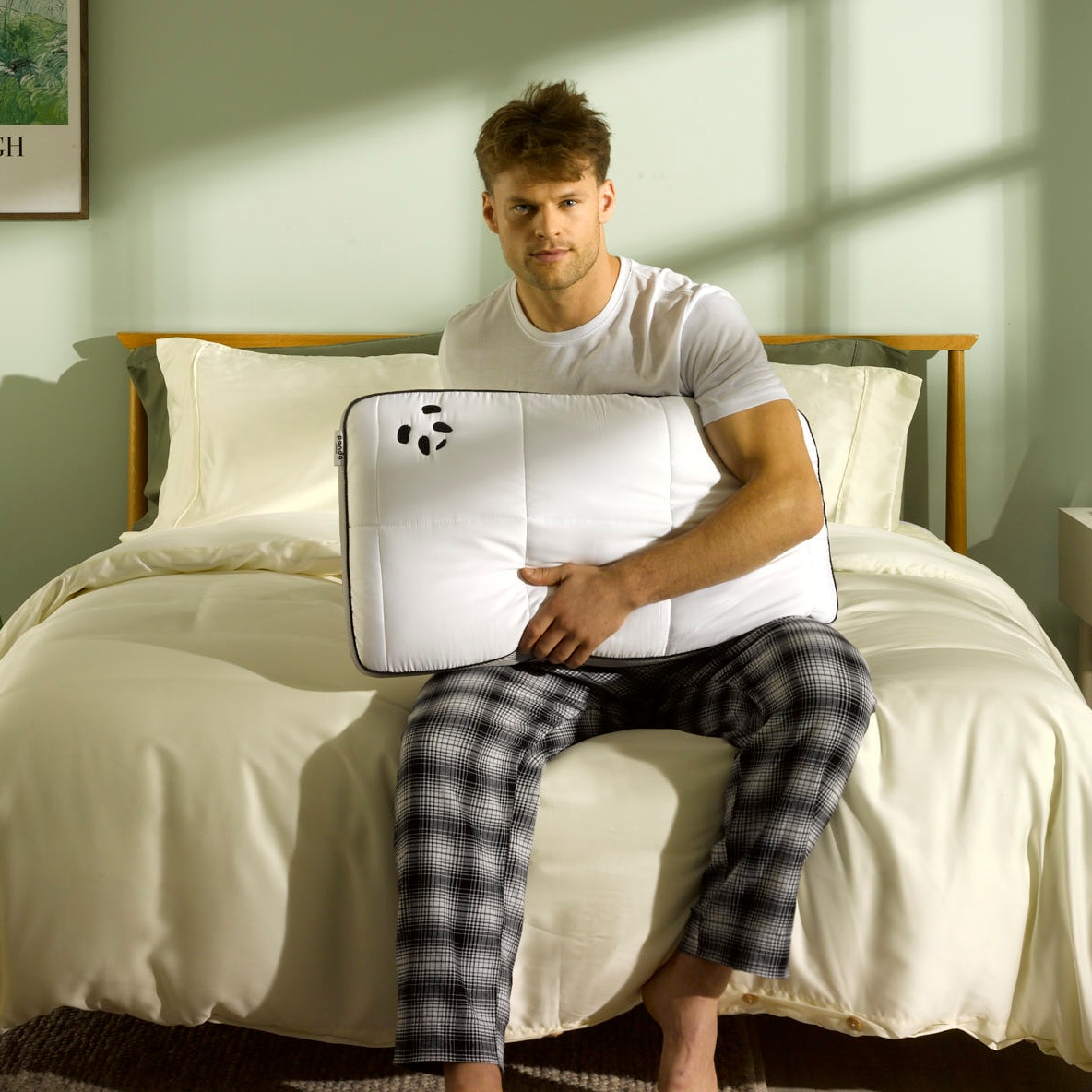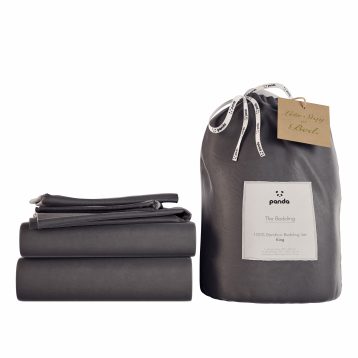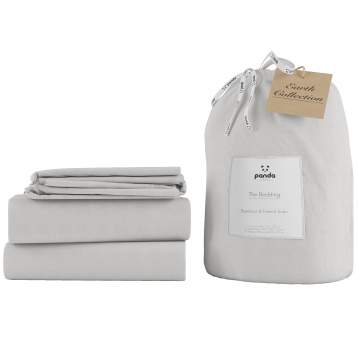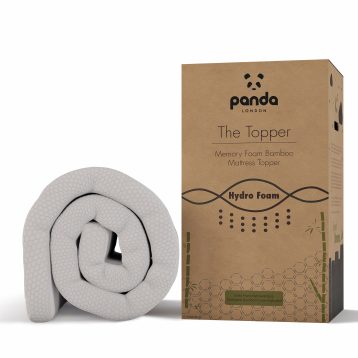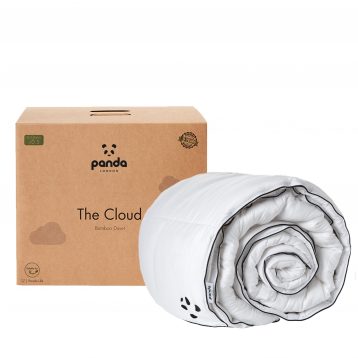Discover Bamboo Lyocell: Revolutionizing Eco-Friendly Textiles
Last updated on April 22nd, 2024 at 03:36 pm
As we become more and more aware of climate issues, there is a clear and growing interest in sustainability of all kinds – and particularly relevant to us here at Panda, sustainable textiles. Our philosophy is to create incredible home and sleep products that do not cost the Earth, meaning we choose to use eco-friendly materials. Bamboo is one of the most sustainable resources out there, and there is a new fabric in town: bamboo lyocell. So what exactly is it, what are its benefits, and why should you opt for lyocell?
What you need to know about bamboo lyocell?
First of all, it is important to understand the answer to the question, ‘What is bamboo lyocell?’ This is the most eco-friendly version of bamboo fabric, made from the pulp of bamboo plants using a closed-loop lyocell process. It is more sustainable than other forms of bamboo fabric, which are incredibly eco-friendly as they are, thanks to the process used to make it.
The process uses non-toxic solvents, which are completely reused along with any water – with barely any wastage; it’s no wonder that this is such an eco-friendly way of creating bamboo fabric. The pulp is then put through spinnerets and turned into fibres! These fibres are woven into fabric used to create bedding, clothes and more. Bamboo is a rapidly regenerating resource, known for how it cleans the air, and as a fabric it is soft, hypoallergenic and antibacterial. When made using the lyocell process, it really tops the list of sustainable textiles.
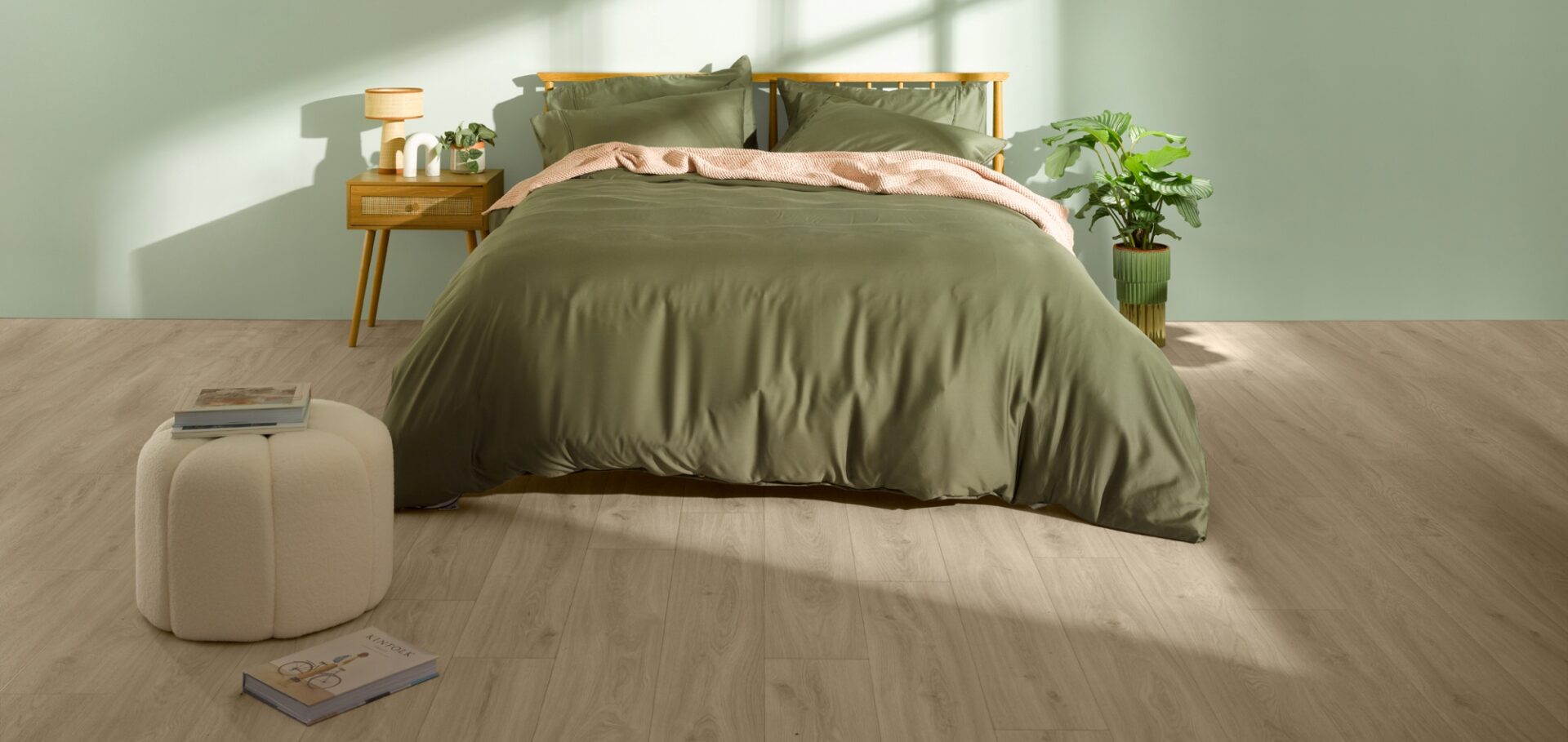
What are the benefits of bamboo lyocell?
There are so many benefits to choosing bamboo lyocell. Firstly, it is incredibly sustainable – there are multiple environmental advantages, so if you’re choosing products with the planet in mind, then it’s definitely one to look out for. Bamboo in general is a renewable resource, growing super fast without the need for much water or any artificial substances. The plant itself sequesters carbon, improving the air quality in the locations where it grows, and the fabric is biodegradable, too. And the closed-loop lyocell process provides further benefits: water used to turn the plant into a fabric is re-used, meaning there is little to no wastage involved!
Following on from this, there are also various health and comfort benefits. Bamboo lyocell is hypoallergenic and naturally antibacterial, as well as incredibly soft. This makes it suitable for even the most sensitive skin, alongside those with allergies and skin conditions. Bamboo lyocell is beautifully breathable, and helps to wick away moisture too – this means no sweaty bedding on hot Summer nights or if you suffer from hot flushes.
Another reason to choose bamboo lyocell is that it is super durable; this is good for your bank balance, as your products will last for years to come, and for the planet too because it won’t end up in landfill after just a year or so. In order to keep your bamboo lyocell products in perfect condition for as long as possible, be sure to follow the manufacturer’s instructions when it comes to cleaning them. Wash at a low temperature, and don’t tumble dry – if you can, hang them on the line so it feels and smells super fresh. This will ensure the fabric remains intact, stays soft, and looks good for longer.
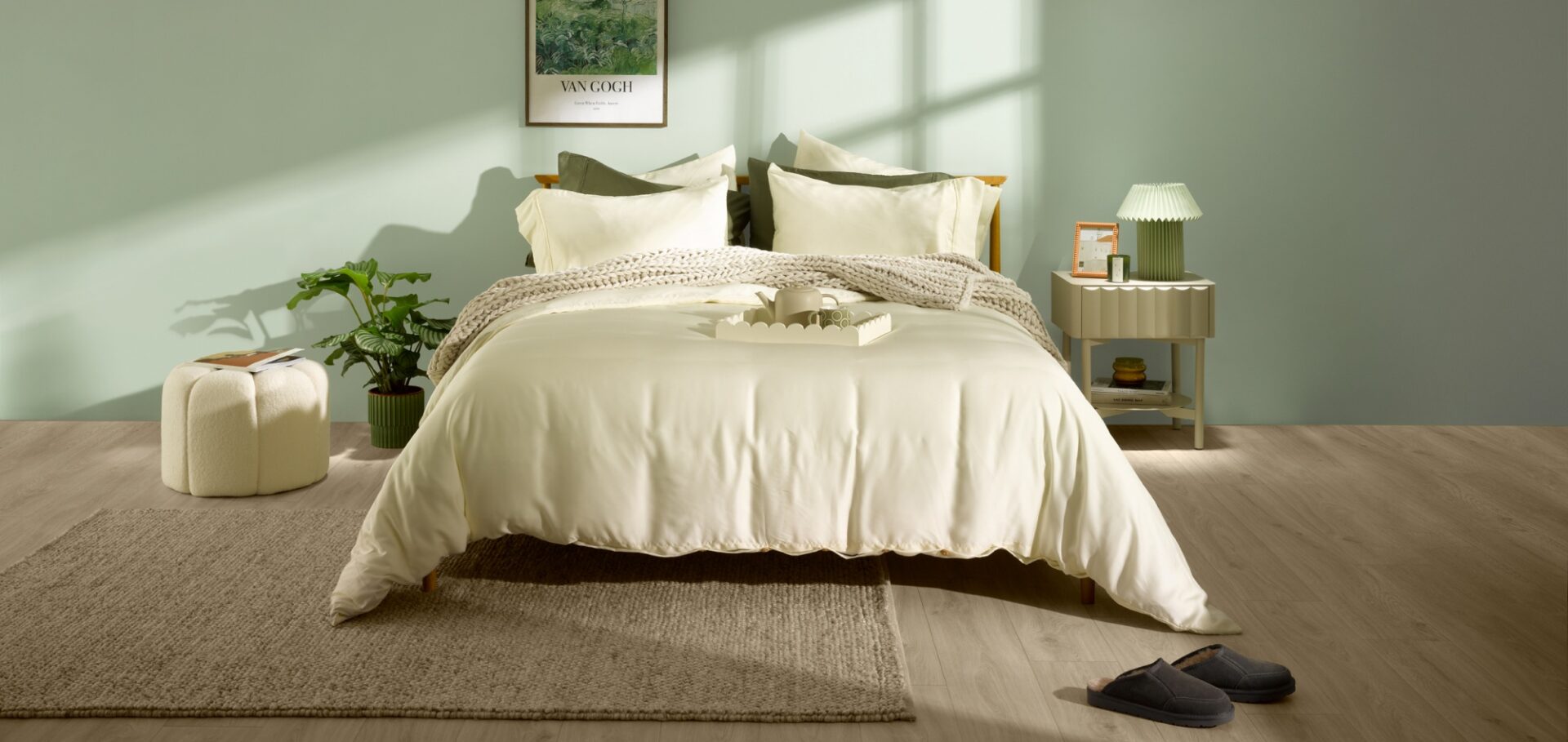
What are some uses of bamboo lyocell?
Now you know what bamboo lyocell is, you might be wondering what it’s actually used for! Due to its incredible softness and the hypoallergenic, naturally antibacterial nature of bamboo lyocell, it lends itself well to the bedding and home textile industry. That’s why we’re launching our brand new Signature+™ collection, which is our most sustainable bamboo bedding yet. Bamboo lyocell is also used in other home textiles such as towels, sheets and blankets.
Bamboo lyocell can also be found in clothing, thanks to its comfort and durability. For those with skin conditions or sensory needs, super soft and kind-to-skin clothing can be really important. Durable and comfortable products like socks and t-shirts made from bamboo lyocell are also great for athletes!
We will likely see a rise in the use of bamboo lyocell thanks to its eco-friendly nature. As brands improve their commitment to sustainability, they will opt for more pro-planet materials when creating their wares. From underwear to baby items to soft furnishings, prepare to see lyocell on the product listings…
Comparing bamboo lyocell to other fabrics
So how does bamboo lyocell compare to one of the most popular fabrics of all time, cotton? First of all, it is much softer to touch and feels so much more gentle on the skin. While it might take a bit more looking after than cotton, it is also much more durable and long-lasting! And, of course, the big one: bamboo requires a third less water than cotton does to grow, and bamboo lyocell, in particular, is incredibly sustainable thanks to the closed-loop production process.
Further to this, what are the differences between bamboo lyocell and traditional lyocell? Traditional lyocell is made from wood pulp, rather than bamboo pulp, so the starting materials aren’t the same – so while they’re similar, only one of the two has all of the amazing eco-friendly properties of bamboo! Where bamboo lyocell is naturally antibacterial, other types of lyocell may not be. The fabrics may feel different, too, as bamboo really is one of the softest materials out there.
Are there any challenges and considerations to be aware of?
As with any new and emerging fabric or material, there are some things to consider! You want to be sure you’re purchasing from a reputable brand who are clear about their process and environmental impact – right now, bamboo lyocell is still completely brand new, and you need to ensure it’s not being used as a buzzword! Look into the specifics of what you’re buying. It is not hugely accessible, as there aren’t many brands using it, but it will become more so as time goes on. Furthermore, bamboo lyocell is a touch more expensive than other types of bamboo fabric. This is simply due to a more complex production process and higher costs involved.
Conclusion
Hopefully, you’ve now got a deeper understanding of what bamboo lyocell actually is – we’ve taken sustainability and turned it up a notch with our upcoming Signature+™ bedding collection. If you’re wanting to live a more eco-friendly lifestyle, then it’s definitely something worth looking into: combining the renewable nature of bamboo with the closed-loop product process of lyocell makes for an incredibly sustainable fabric. Buttery, soft, and durable too, this is the perfect choice for your eco-conscious home!
Explore our range:
100% Bamboo Bedding
Rated 5 out of 5£16.96 – £153.00Bamboo & French Linen Bedding
Rated 5 out of 5£21.68 – £169.96Bamboo Mattress Topper
Rated 4.97 out of 5£84.96 – £204.00Panda Cloud Duvet
Rated 5.00 out of 5£84.96 – £139.95

